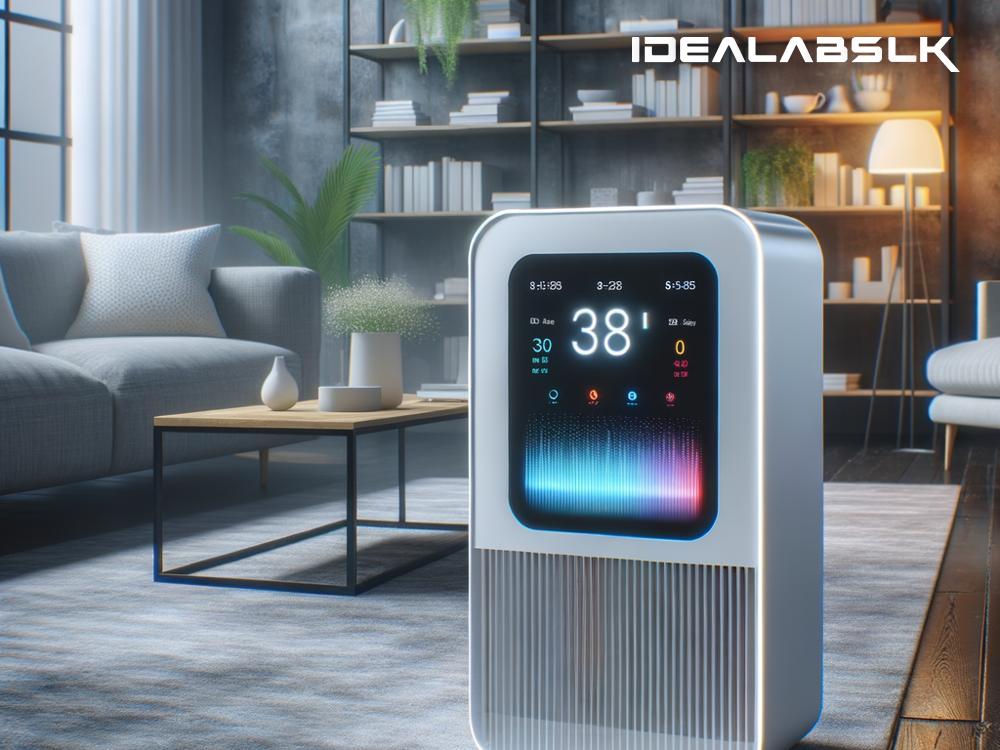AI in Compact Air Purifiers: Adapting to Room Conditions
As we navigate through our daily lives, we often overlook the crucial aspect of the air we breathe. With increasing pollution levels and allergens in the air, maintaining a healthy indoor environment has become more vital than ever. This is where air purifiers step in, playing a significant role in filtering out contaminants to provide us with cleaner air. And in recent years, the integration of Artificial Intelligence (AI) into compact air purifiers has redefined their efficiency, making them smarter at adapting to room conditions on their own.
The Need for Adaptability in Air Purifiers
Imagine stepping into your home after a long day, only to find it stuffy or smelling slightly off because your air purifier hasn’t been working as hard as it should. Or perhaps it’s been working too hard, consuming energy unnecessarily when the air is already clean. Both scenarios are far from ideal. This is where AI steps in, bridging the gap between one-size-fits-all settings and the dynamic nature of our living spaces.
How AI Enhances Air Purifiers
AI, in its essence, involves the use of computers and technology to mimic intelligent human behavior. When applied to compact air purifiers, AI can process environmental data, learn from it, and make decisions to optimize air quality without human intervention. Here’s how AI breathes new life into these devices:
-
Adapting to Changes in the Environment: AI-enabled air purifiers constantly monitor the room's air quality. They can detect changes like increased pollen on a windy day or the presence of smoke if you’re cooking, adjusting their settings in real-time to tackle the specific pollutants.
-
Learning from Daily Patterns: These smart devices learn from your daily activities. If the kitchen tends to have more smoke around dinner time or if your living room needs extra cleaning when the windows are opened in the evening, the air purifier can remember these patterns and adjust its functioning accordingly.
-
Optimizing Energy Consumption: Besides improving air quality, AI in air purifiers ensures that they work efficiently, using just the right amount of energy. If the air is clean, the purifier might lower its fan speed, conserving energy, and making the device eco-friendly.
-
Responding to Voice Commands: Many AI-powered air purifiers are integrated with smart home systems, allowing them to be controlled through voice commands. You can instruct your air purifier to turn on or adjust settings without lifting a finger, enhancing convenience and accessibility.
Practical Benefits in Everyday Life
The implications of these advancements are more than just technological wonders; they improve our quality of life. People with allergies or respiratory issues can breathe easier, knowing their environment is being continuously monitored and adjusted for their comfort. Pet owners can mitigate the omnipresent pet dander, and everyone benefits from a reduction in household odors and pollutants.
Moreover, since these AI-enabled devices can also gather data on air quality trends over time, they provide valuable insights into when and where your home is most susceptible to air quality drops, allowing for proactive measures.
Making Smart Choices for Your Home
If you’re considering leveling up your home’s air purification system with an AI-powered compact air purifier, there are a few things to keep in mind:
- Features vs. Needs: Evaluate the features offered by different models and match them against your specific needs. Allergen removal, energy efficiency, noise levels, and compatibility with smart home systems are critical considerations.
- Size and Coverage: Ensure the device is suitable for the size of the room where it will be used. An air purifier meant for a small bedroom might not be effective in a spacious living room.
- Maintenance and Cost: Consider the long-term costs, including filter replacements and energy consumption. While AI air purifiers might come with a higher initial price tag, their efficiency can lead to savings over time.
Embracing the Future of Clean Air
In conclusion, the fusion of AI with compact air purifiers represents a significant leap forward in making our indoor environments healthier and more comfortable. By adapting to room conditions with minimal human intervention, these smart devices not only improve air quality but also enhance our interaction with the technology that fills our homes. As we continue to embrace these innovations, we pave the way for a future where clean, fresh air is just a breath away.

